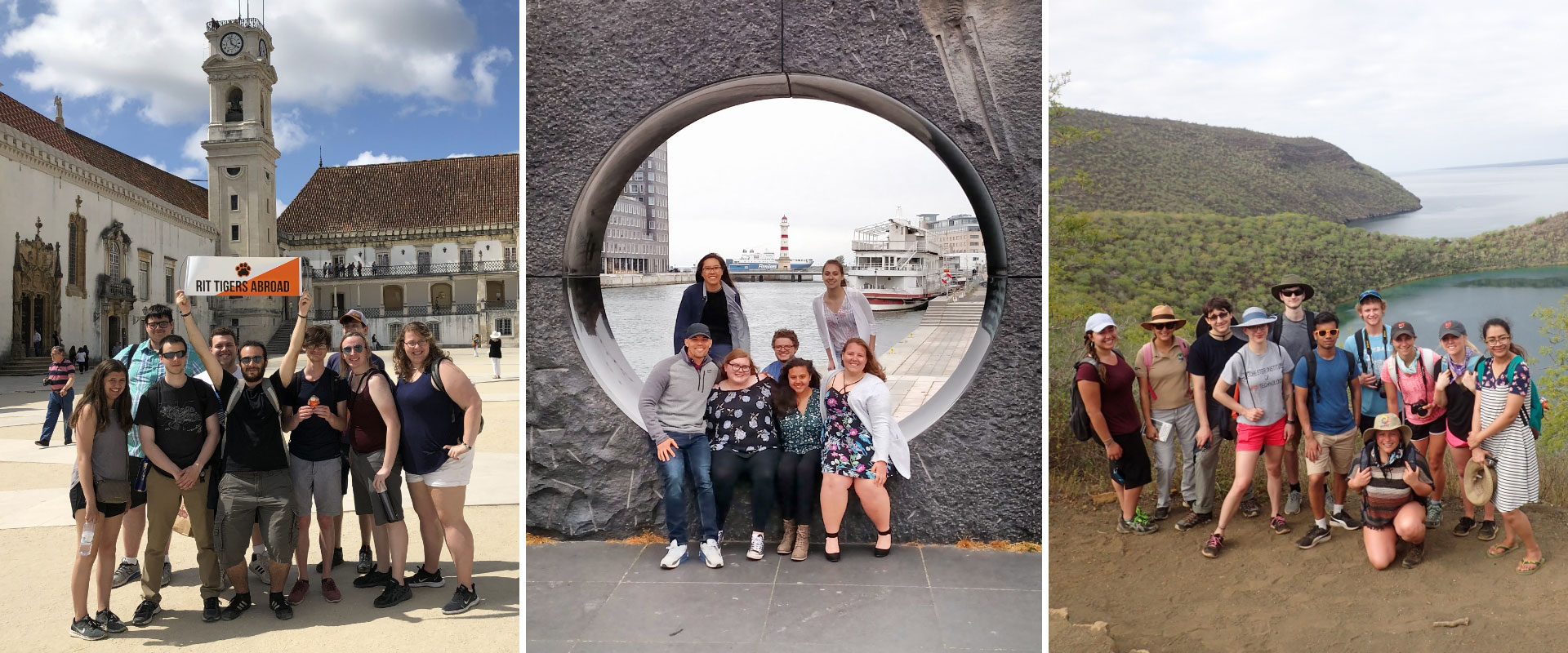Home Page
Study abroad takes you to corners of the world where you’ll be inspired, challenged, and changed. Examine your field of study from a new perspective, meet global innovators, and gain professional skills to set you apart as a leader in a globalized work environment.
RIT Study Abroad - Classrooms Without Borders
600
study abroad programs in 60 countries
5
RIT Global Campuses
98%
RIT study abroad alumni who say their experience increased their self-confidence
100%
RIT students who can fit a study abroad experience into their plan of study
Identity and Diversity Abroad
Other cultures may value diversity differently, and diversity may be more or less embraced in the culture you will be living in. It’s important to do some research beforehand to understand how your host culture values diverse characteristics.

Health and Safety
Study abroad can heighten pre-existing medical, mental health, or personal issues or contribute to new ones. Local culture, customs, and practices may not have/provide the support systems you might be accustomed to in the U.S. Though this is a time of broadening your horizons, you must exercise caution to be as safe as possible while overseas.

International Education at RIT
The RIT Global Office supports and advances the university in its international education initiatives. The office staff provides support to students, faculty and staff interested in an international experience, including exchange programs, international fellowships, and the RIT Global Campuses.


















